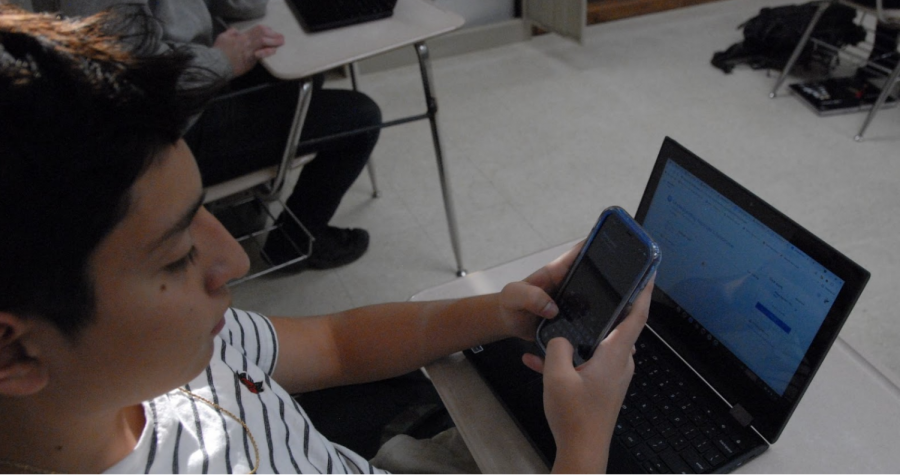Too Far or Too Much?
7:45am at Lakeland Highschool, Diego Aguilar, a sophomore, scrolling through his phone while in his 1st period class. Hiding his phone so the teacher won’t notice.
April 14, 2021
We all know someone who cannot resist being on their phone. They have some kind of connection with it to the point where they would risk getting taken away.
Should schools let students be on their phones or should they be more strict about them? Well, when you let a teenager get on their phone, anywhere, their attention is mostly on their device so teaching would not even really take place.
But over ruling and being super strict about phones isn’t smart either. Lakeland High School has a phone policy but it isn’t super strict, to be honest it’s quite fair.
Some teachers don’t let you have it out in class whatsoever while other teachers hope you get your work done first.
Logan Swanson, a sophomore at East Valley High School in Washington, states that “The phone policy varies from teacher to teacher. Most don’t let us have it in class at all while others hope we at least heard what they said. Other than that I wouldn’t say it’s strict.” Which is about the same here, at Lakeland High School in Idaho.
It’s a student’s job to participate in class and do what the teacher says, they only want to help you and do the best for you while doing their part as a teacher. But some students don’t seem to understand that they may think that the teacher just doesn’t like them which isn’t, or atleast shouldn’t be, true.
As of today’s generations, we rely on technology for literally everything. News, communication, entertainment, being social, learning to do things like driver’s education and there is also online school, which isn’t fun.
One thing a teacher should do, when it comes to phones, is giving a warning. If a student isn’t doing what they are supposed to the first time they should receive a warning, the second the teacher is, or should be, allowed to take the phone until the end of the class period. If the student continues to ignore the warnings, there should be further consequences.
A teenager will find any way to be on their phones, it could be something as silly as checking the time when there is a regular clock next to them.
Phone restrictions can be applied to more places than just in school and teenagers. They should even be added to certain ages of children.










